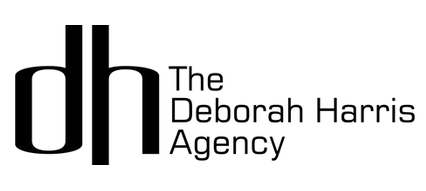DANCING ARABS

Fiction, 2002
Sayed Kashua provides Israeli literature with one of its most affecting characters: a hero who is equally Palestinian and Israeli; entirely Hebrew and entirely Arab; raised in an Arab village and educated in a Jewish boarding school in Jerusalem, a city both liberated and occupied. Along the way, the hero meanders between two strong women, one called “grandma,” the other “my wife.” Each one teaches him a lesson in love, loyalty, and honesty. They are the anchor that allows him to run from himself, to follow his passions, and most important, to practice his most unusual talent: to “disappear.” This talent enables him to uncover and map the cracks in his soul, and the wild void in the heart of Israeli society. DANCING ARABS is the recipient of the Grinzane Cavour Award 2004 for First Novel (Italy).
Rights Sold to:
Czech Republic: Pistorius (extended); France: Editions de l'Olivier; Germany: Berlin Verlag; Holland: Vassallucci; Indonesia, Serambi; Israel: Modan; Italy: Guanda (reverted); Poland: Fundacja Pogranicze; Spain: Ediciones Tropismos; Turkey: Picus Yaymcilik; USA: Grove Atlantic Inc; Vietnam: Domino Publishers
Film Rights: Alma Films
Reviews:
“Gritty and agile...On any given day, Kashua’s narrator may daydream of becoming the first Arab prime minister, bringing ’peace and love to the region,’ or embracing militant Islam and blowing up Israeli soldiers at a local intersection – only to do neither. As a portrait of a young man’s drift into emotional no man’s land, this novel has the feel of grim truth.” – The New York Times Book Review
“An amazing work of fiction. It has integrity and beauty. It rises above the polemics of that searing conflict and renders the life of that land with a touch of humanity.” – Fouad Ajami
“Kashua goes beyond the front-page headlines and horrific newspaper photos of Middle East violence to show a different view of what being an Arab is all about.” – The San Francisco Chronicle
“Sayed Kashua’s affecting...debut novel...evokes the conditions, political and personal, that forge his narrator’s disaffected identity...Kashua can be equally unsparing when it comes to the anti-semitism that pervades the Muslim community and the inequities that plague Arab Israeli culture...[and] succeeds admirably in creating a protagonist adrift between two worlds, neither of which, tragically, can sustain him.” – The Miami Herald
“Slyly subversive...The hopelessness of [the protagonist's] life is offset by Kashua's deadpan, understated humor....A chilling, convincing tale.” – Publishers Weekly
“A quick, readable, highly engaging debut tale of an Arab-Israeli whose life is one of anger, fear, and broken spirit … never self-indulgent or sentimental … (Kashua’s) story rings out on every page with a compelling sense of human truth.” – Kirkus Reviews
“In its moving and mordantly funny depiction of a life lived on the margins of a fundamentally inhospitable society, Dancing Arabs introduces humanity where politics has failed…A grim but affecting debut.” – Time Out
“An impressive debut novel...[that] stares unflinchingly at the many ugly realities on both sides of an eternal national crisis, and the result is a bracingly candid lamentation.” – The Baltimore Sun
“Sayed Kashua’s frankness and his detailed descriptions give the book the dimensions of a striking satire.” – Die Welt
“Minutely observed everyday stories alternate with realistic descriptions of an annexed village. Sayed Kashua takes the time necessary to fully develop characters and story.” – SAT3
“Kashua’s courageous first novel has been rightly celebrated in Israel as a great discovery…honest and intelligent.” – Brigitte Special
“Kashua elevates his dancing Arabs into symbols of his hard-earned existence: a life between, where everybody dances with himself.” – Die Tageszeitung
“Captivating … Sayed Kashua delivers a testimony of an Israeli society plagued by prejudice…” – Le Monde des Livres
“A shocking book … Chronicles the hell of anguished cohabitation and prejudice that foment fears.” – La Liberte
“Kashua has written a novel worth reading, one that offers the reader an interesting insight into everyday life in Israel, against the backdrop of the current conflict with the Palestinians.” – Fragmentum
